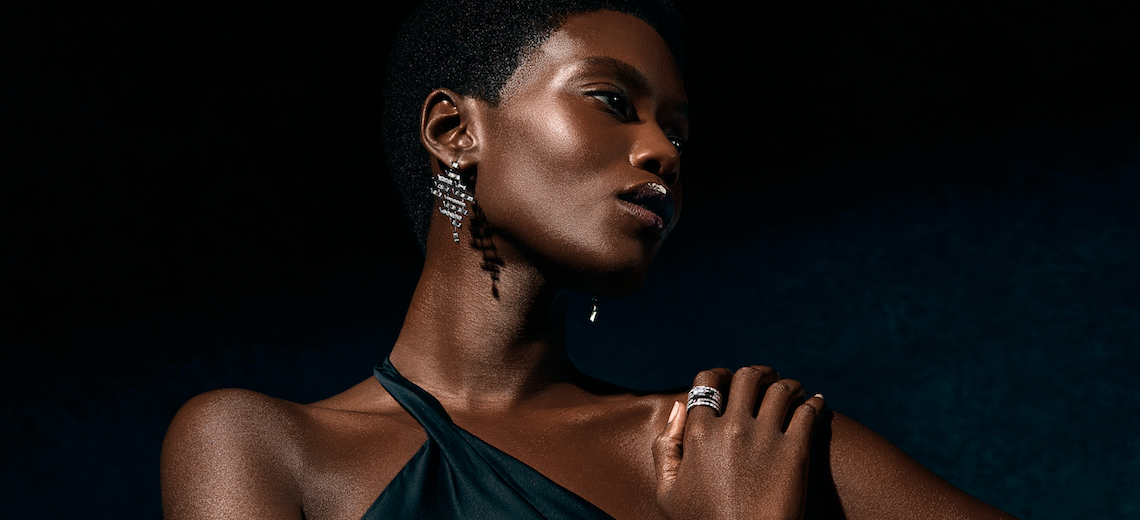Specializing in diamonds made from atmospheric carbon, sustainability-minded jeweler Aether announced $18 million in Series A funding on Wednesday.
The B Corp-certified diamond brand is funded by a group of investors focused on sustainable and ethical startups. Its latest funding round is led by socially conscious investment firm Helena and co-led by cleantech-focused VC firm TRIREC, with participation from Ashton Kutcher and Guy Oseary’s VC firm SoundWaves, as well as Khosla Ventures and Social Impact Capital. Aether’s investment now totals $21 million. The company is located in New York’s Diamond District.
Aether’s technology is “something that will open this market up to folks who have a desire to buy a luxury piece of diamond jewelry, but also want to do something that meets their values from an environmental and social perspective,” said Aether CEO Ryan Shearman, an alumni of David Yurman.
At a luxury price point, an Aether diamond is “similar to a mined diamond” in both cost and quality, said Shearman. The company defines carbon-capture diamonds as “atomically identical” to mined diamonds. “We find that consumers are happy to pay that additional price point because of the impact that comes with their purchase.”
Shearman started working on the brand in 2018 after being introduced to Climeworks, a Switzerland-based company focused on carbon-direct air capture technology. Climeworks injects CO2 underground in liquid form, where it reacts with certain rock formations and becomes solid via a process called subterranean mineralization. The brand purchases the carbon mainly from Climeworks and converts it to diamonds in its own facility.
Ad position: web_incontent_pos1
Climeworks received the 2017 Helena Prize award from Helena, which describes itself as a “global problem-solving organization” that invests in sustainability-focused for-profit startups, as well as non-profits. The prize awarded management and digital consulting support from Boston Consulting group, access to a business incubator workspace at the University of California Davis, mentorship and membership in Helena’s Brain Trust.
“I was fascinated when I saw that there’s a company that [can] actually do something with the carbon that is sucked out of the atmosphere,” said Henry Elkus, founder and CEO of Helena. Elkus said he came across Aether after reading about the brand in a Vogue article and noticing it was purchasing the carbon from Helena’s former prize winner.
“We knew we didn’t want to have to go and invent a new way of pulling carbon from the air. Plus, we knew some of the challenges these companies were facing surrounding operating costs, monetizing what they were doing and [figuring out] what to do with that carbon,” said Shearman.
Ad position: web_incontent_pos2
Aether began selling products in 2021, offering diamond jewelry via its DTC e-commerce site. Launched initially with engagement rings and then expanding into other categories, it is especially focused on marketing in the bridal category. Its marketing messaging focuses on both its luxury positioning and sustainability. The brand emphasizes on its website and social channels that it removes 20 metric tons of CO2 from the air for every carat of diamond sold, which it says offsets the average American’s carbon footprint by over a year.
For the jewelry, Aether only uses white, rose and yellow gold from sellers authorized by the Fairmined organization, which sets standards in mining for labor conditions and environmental practices. The brand opts for Fairmined rather than recycled gold.
“There’s a lot of greenwashing that happens” with recycled gold, said Shearman. “[For example,] you could take gold that comes from a ‘dirty’ source, make a bunch of jewelry, take the scrap from that production, melt it down and make new jewelry, and all of a sudden, it’s recycled.”
In addition to producing its own jewelry, the brand is also launching wholesale this year. And it’s in “conversation with all different types of brands at the upper end of the spectrum,” about the possibility of becoming a diamond supplier to luxury brands, he said.
Aether is hoping to position itself as a luxury alternative to mined diamonds for jewelers, which are hesitant to use lab-grown diamonds.
“Whether or not everyone adopts lab-grown diamonds is kind of a big question mark. At the upper end of the market, they have to deal with this issue of perceived value and maybe having an incongruence between where their line normally sits and where lab-grown sits in the minds of consumers,” said Shearman.
With reports of rampant human rights abuses in the diamond mining industry, consumers are increasingly turning to lab-grown diamonds, which now make up 7.5% of the global diamond trade, according to industry analyst Paul Ziminsky. But according to Aether, the brand takes social responsibility a step further.
“The lab-grown diamonds segment is awash with problematic messaging, almost to the point where it’s disingenuous. Lab-grown diamonds still need a carbon source,” said Shearman.



